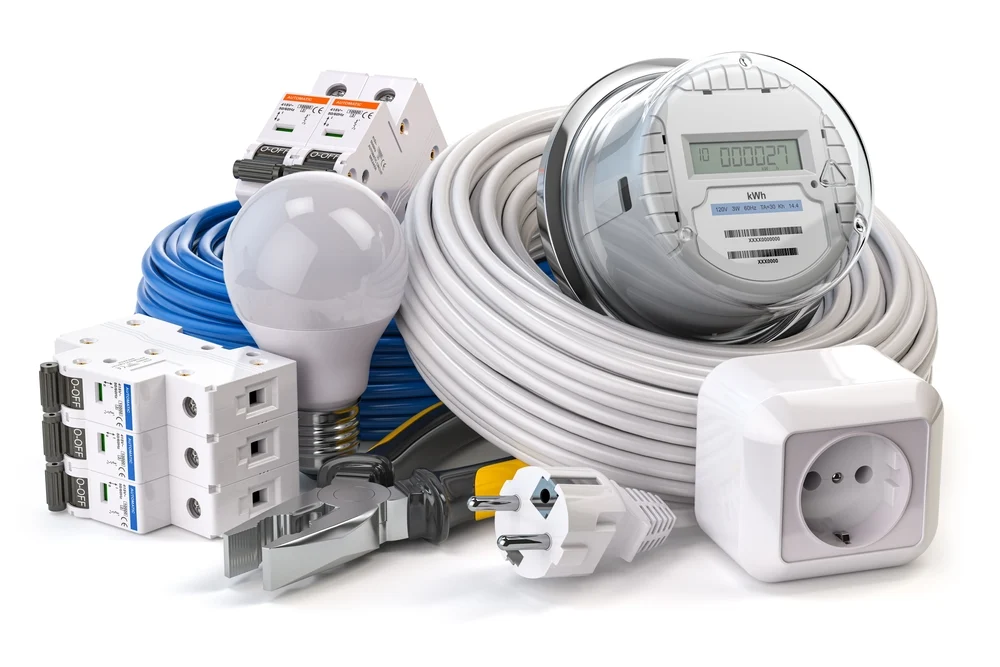When it comes to maintaining and upgrading your business’s electrical system, selecting the right electrical parts supplier is crucial. Whether you’re handling a residential or commercial project, partnering with the right supplier can make all the difference in the safety, reliability, and efficiency of your electrical components. This guide will provide valuable insights into how to choose the best electrical parts supplier for your business, with a focus on industrial circuit breakers, residential circuit breakers, and other essential electrical equipment.
Why Choosing the Right Electrical Parts Supplier Matters
In the world of electrical installations and repairs, the quality of the components used plays a vital role in the overall safety and performance of the system. Selecting the wrong supplier or subpar products can lead to malfunctioning systems, higher maintenance costs, and potential hazards to employees, customers, and your business.
The right electrical parts supplier ensures that you have access to high-quality equipment, timely delivery, and expert advice to help you make informed decisions. A reliable supplier can even help you stay within budget, ensuring that your electrical system works seamlessly for years to come.
Key Factors to Consider When Choosing an Electrical Parts Supplier
To ensure that your business gets the best products and services, consider the following factors when selecting an electrical equipment supplier:
1. Product Quality and Variety
Quality should be your top priority when selecting an electrical parts supplier. Look for suppliers that offer high-quality, certified products that meet the necessary safety standards. A reputable supplier should carry a range of electrical equipment, including:
• Industrial Circuit Breakers: These are crucial for protecting commercial electrical systems from overloads and short circuits. Make sure your supplier offers a variety of circuit breakers to suit different applications, whether you’re handling large machinery or a complex electrical infrastructure.
• Residential Circuit Breakers: These are designed for home use, protecting residential electrical systems from damage. Ensure your supplier offers the latest models that comply with industry regulations.
• Other Electrical Components: Besides circuit breakers, you’ll need various components like switches, transformers, wiring, connectors, and safety devices. Ensure that your supplier carries these essentials as well.
2. Supplier Reputation and Reliability
The reliability of the electrical parts supplier is essential to ensure that your business gets the right parts at the right time. Check reviews and testimonials from other businesses in your industry. Do they consistently meet deadlines? Are their products high-quality? Does the company offer customer support and technical assistance when needed?
Opt for suppliers that have a strong reputation for reliability, transparency, and customer service. A supplier that offers expert advice can help you make the best choices for your specific needs, whether you’re upgrading industrial circuit breakers or performing routine maintenance on residential systems.
3. Availability of Expert Consultation
Electrical systems can be complex, and sometimes, you need more than just a product — you need guidance. A reliable electrical parts supplier will provide expert consultation to ensure that you’re choosing the right components for your project. Whether you’re working on new installations or need to upgrade existing systems, expert advice can prevent costly mistakes and ensure compliance with industry standards.
Consultation can help you with selecting the correct industrial circuit breakers for your business. A specialist can guide you through the different types available, whether you’re dealing with high-capacity electrical systems or more basic setups.
4. Pricing and Payment Options
While price shouldn’t be the only factor in your decision, it’s still an important consideration. Compare pricing from different electrical equipment suppliers to ensure you’re getting a competitive deal. Keep in mind that cheaper products often come with lower quality and may require more maintenance, which can cost you more in the long run.
Additionally, check for flexible payment options, especially if you’re dealing with large quantities of equipment or a significant project. Some suppliers offer discounts for bulk orders or flexible payment terms for long-term business relationships.
5. Delivery and Logistics
Timely delivery is crucial when working on electrical installations or repairs. If your supplier has a reputation for delays, it could disrupt your project schedule. Look for a supplier that offers reliable delivery times, shipping options, and even local or regional warehouses to ensure quick access to the electrical parts you need.
In some cases, you may need specialized industrial circuit breakers or other components that are difficult to find. A supplier with a good network will have access to rare or hard-to-find parts and be able to get them to you quickly, reducing downtime and project delays.
6. After-Sales Support and Warranty
Good after-sales support is critical, especially for businesses that rely on electrical systems to keep their operations running smoothly. When choosing an electrical parts supplier, inquire about their warranty policies and the support they provide after the sale.
For example, if a residential circuit breaker malfunctions or a product doesn’t meet specifications, how quickly can the supplier respond? Do they offer a warranty replacement or repair? A supplier that stands by their products and offers quick, reliable after-sales support is worth their weight in gold.
Tips for Choosing Between Residential and Industrial Circuit Breakers
If you’re specifically looking for circuit breakers, understanding the differences between industrial circuit breakers and residential circuit breakers will help you choose the right product:
• Industrial Circuit Breakers: These are designed for heavy-duty commercial or industrial use, where higher currents and potential electrical faults are more common. They provide protection for complex electrical systems and large machinery.
• Residential Circuit Breakers: These are typically used in homes and small businesses. They are designed to protect the electrical system from overloads and are generally smaller in capacity compared to industrial breakers.
Make sure your supplier can provide both types of circuit breakers, so you can choose the appropriate one based on your business’s needs.
Conclusion
Choosing the right electrical parts supplier is essential for ensuring the long-term success of your electrical projects. By focusing on factors like product quality, supplier reputation, expert consultation, pricing, and after-sales support, you can make a more informed decision. Whether you’re upgrading your industrial circuit breakers, installing residential circuit breakers, or sourcing other electrical components, partnering with the right supplier will help ensure the safety, reliability, and efficiency of your electrical systems. Take your time to evaluate potential suppliers and choose the one that best meets your specific business needs. electrical motor controls





More Stories
Louis Vuitton Wall Art: The Ultimate Statement in Luxury Interior Decor
How to Choose the Right Wedding Photographer in Denver Without Stress
What to Know Before Hiring a Gutter Company in Gainesville FL: A Friendly Guide